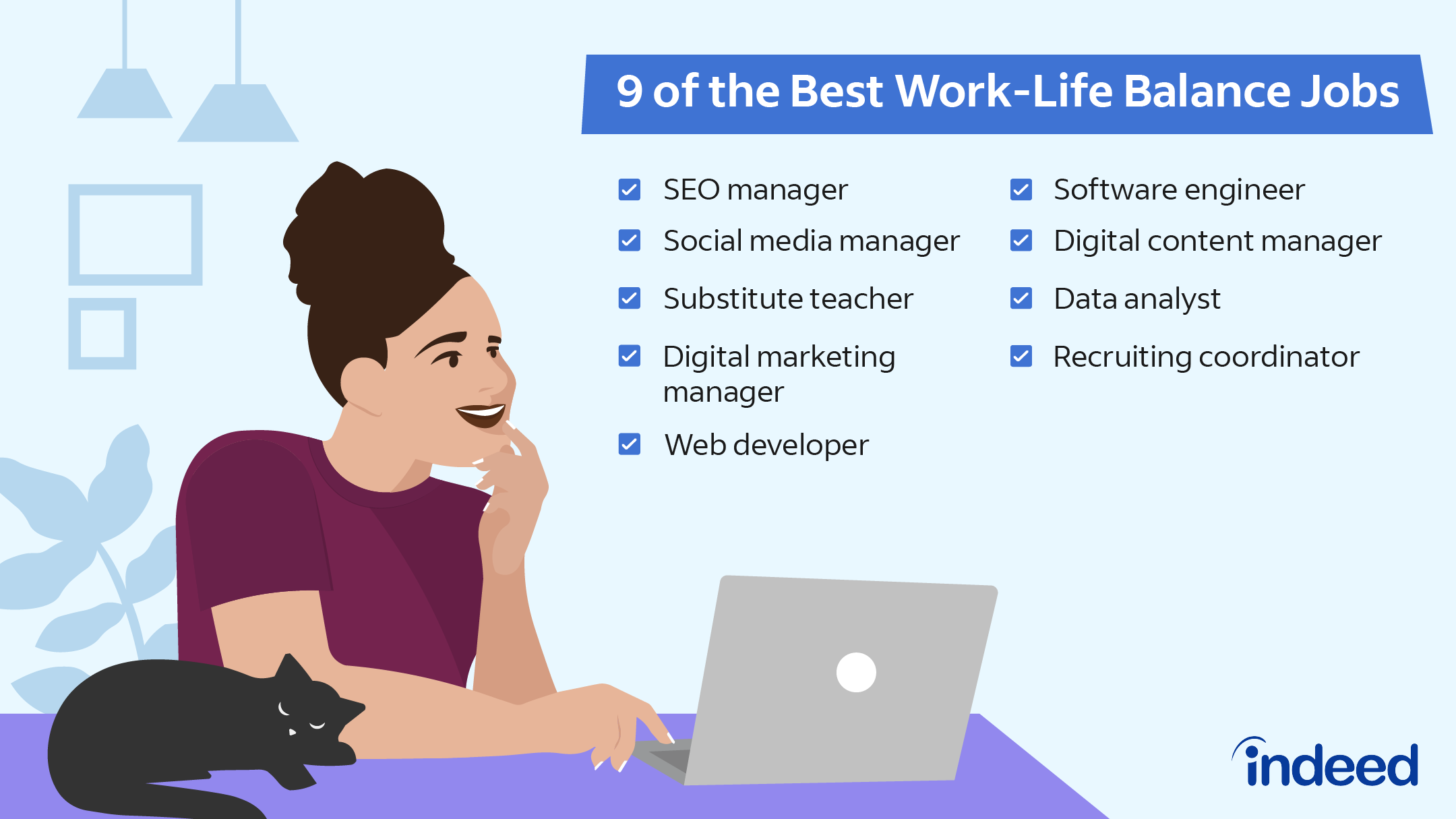
If you’re a financial analyst trying to achieve work-life balance, you’re not alone. Financial analysts prioritize their work, but it’s important to remember that a healthy balance is crucial for success and well-being. With the right balance, you can excel in your career and have a fulfilling personal life.
Achieving work-life balance in today’s fast-paced world can sometimes feel impossible. However, with the right strategies and mindset, it is possible to strike a harmonious equilibrium between work and personal life. In this article, we will explore achieving work-life balance as a financial analyst and provide valuable insights and practical tips to help you regain control and live a more fulfilled life.
By reading this article, you will:
– Discover the importance of work-life balance for financial analysts
– Gain insights on the challenges faced by financial analysts in achieving work-life balance
– Learn effective strategies and tips to establish and maintain a healthy work-life balance
Work-life balance is essential for your well-being and success as a financial analyst. This article will guide you in achieving this balance by taking control of your life and finding the perfect career that doesn’t require you to sacrifice your personal life. So, let’s explore the benefits and keys to work-life balance.
How Financial Analysts Maintain a Healthy Work Life Balance
Financial analysts are crucial in the business world, analyzing data and making recommendations to inform financial decisions. However, the demanding nature of the job can challenge work-life balance. Here are strategies that financial analysts can use to find balance:
Firstly, analysts can prioritize tasks and set realistic goals. By creating a to-do list and achievable deadlines, they stay organized, minimizing overwhelm. This allows them to manage their workload and allocate time for personal activities.
Financial analysts can utilize technology to improve their work processes and boost efficiency. Tools and software can streamline tasks and simplify complex calculations, saving analysts time. By leveraging technology, analysts can reduce manual labor and have more time for other aspects of their lives.
Setting clear boundaries between work and personal life is also crucial for financial analysts. By designating specific times for work-related matters and personal activities, analysts can maintain a healthy separation between the two. This ensures that personal time is not constantly disrupted by work demands.
Financial analysts should not overlook the importance of self-care. Engaging in exercise, relaxation techniques, and hobbies reduces stress and improves overall well-being. By incorporating self-care into their routine, financial analysts can recharge and maintain a positive mindset, leading to increased productivity and a better work-life balance. Prioritizing tasks, utilizing technology, setting boundaries, and practicing self-care allows financial analysts to effectively juggle professional responsibilities and enjoy personal lives. Achieving work-life balance is essential for long-term career satisfaction and overall well-being.
Overview
Financial analysts are vital in evaluating investments, providing guidance, and analyzing market trends. Their work involves long hours, intense research, and complex financial modeling. However, work-life balance is crucial for these professionals’ productivity and well-being.
Financial analysts gather and analyze financial data, conduct research, and prepare reports. They collaborate with team members and clients to develop investment strategies and make recommendations. This requires attention to detail, working under pressure, and meeting deadlines.
To maintain work-life balance, financial analysts need to prioritize their time and set boundaries. This can involve establishing a routine, setting realistic expectations, and delegating tasks when needed. Taking breaks, practicing self-care, and engaging in activities outside of work can also help prevent burnout and maintain overall well-being.
Summary of key components of work-life balance for financial analysts:
– Time management: Prioritize tasks, set boundaries, and establish a routine
– Delegation: Delegate tasks when necessary to prevent feeling overwhelmed
Regular breaks, self-care, and non-work activities.
Effective communication with team members and clients.
Embrace flexibility and adapt to changing demands.
Prioritize physical and mental well-being.
Key Features or Points

Financial analyst work-life balance greatly impacts job satisfaction and overall well-being. Consider these key aspects:
1. Flexible Schedule: Many financial analyst positions offer flexibility in working hours and location. This allows professionals to balance work and personal commitments, like family care or hobbies.
2. Remote Work Opportunities: With technological advancements, remote work is common in finance. This allows financial analysts to work from home or anywhere with an internet connection, reducing commuting time and improving work-life integration.
High Pressure and Demanding Deadlines: Being a financial analyst is challenging due to the high-pressure environment and tight deadlines. This can result in long working hours and a blurred work-life boundary, highlighting the need for time management and self-care.
Professional Growth and Learning Opportunities: The finance industry constantly evolves, demanding financial analysts to stay up-to-date. Continuous learning and additional work may be necessary, but it also offers personal and professional growth opportunities.
5. financial analysts work with professionals, such as investment bankers, portfolio managers, and research analysts. This collaboration can foster teamwork and offer a supportive network, improving work-life balance.
To maintain work-life balance as a financial analyst, effective time management skills, communication, and self-care commitment are essential. Although the job might have demanding deadlines and high pressure situations, its flexibility, learning opportunities, and collaborative environment can make it a rewarding and well-rounded professional experience.
Practical Tips or Strategies

Finding a work-life balance as a financial analyst can be challenging, but with the right strategies, it is possible. Here are some practical tips to help you achieve this:
1. Prioritize your time: Effectively prioritize your tasks as a financial analyst. Identify your most important tasks and allocate specific time slots for them. This ensures you dedicate enough time and attention to your work tasks while also setting aside time for personal activities.
2. Plan your schedule: A well-planned schedule can make a difference in achieving work-life balance. Plan your day in advance, including both work-related tasks and personal obligations. Setting clear objectives for each day and sticking to a schedule helps you stay focused and avoid excessive hours at work.
3. Learn to delegate: Delegating tasks can help reduce your workload and make more time for personal activities. Identify tasks that can be passed on to colleagues or subordinates without compromising work quality. Effective delegation can distribute the workload and give you time for yourself.
4. Set boundaries: Establish boundaries between work and personal life. Avoid bringing work home and establish clear working hours. Communicate these boundaries to colleagues and supervisors, stating your availability and need for personal time. Setting boundaries prevents work from overpowering your personal life.
5. Practice self-care: Maintaining a healthy work-life balance requires taking care of yourself. Prioritize activities that recharge you, like exercise, hobbies, and quality time with loved ones. By prioritizing self-care, you’ll boost both your well-being and productivity at work.
6. Seek support: Don’t hesitate to ask for help or advice when needed. Reach out to colleagues, friends, or family members who can provide guidance and perspective on managing your work and personal responsibilities. Having a strong support system is key.
Implementing practical tips and strategies can help financial analysts achieve a better work-life balance. Balancing work and personal life is an ongoing process that requires effort and adjustment, but the rewards make it worthwhile.
Personal Perspective or Case Study
In my experience as a financial analyst, achieving work-life balance can be challenging. The job requires long hours and intense concentration, leading to a blurred line between work and personal life, which can cause periods of high stress and burnout.
Fortunately, I have discovered effective strategies for improving work-life balance. First, setting clear boundaries is essential. Prioritizing personal time and establishing a strict work schedule has helped me separate my professional duties from my personal life.
I have learned to manage time effectively and prioritize tasks. By breaking down my workload into smaller chunks, I achieve more in less time and avoid becoming overwhelmed. This improves my efficiency at work and gives me more time for personal activities.
Taking time for self-care is also important. Engaging in activities that bring me joy and help me unwind maintains a healthy work-life balance. Whether it’s exercising, spending time with loved ones, or pursuing hobbies, these activities rejuvenate me mentally and emotionally, allowing me to thrive professionally.
Interviews
Interviews play a crucial role in the financial analyst hiring process. They help employers evaluate candidates’ qualifications, skills, and fit with company culture. Financial analyst interviews usually include technical and behavioral questions, as well as case studies.
Candidates may be asked about their experience with financial analysis tools and software, interpretation of financial statements and data, and problem-solving abilities. In addition, communication and teamwork skills will be assessed as they are vital for collaborating with clients and internal stakeholders.
Preparing for a financial analyst interview requires an understanding of industry trends, financial concepts, and analytical techniques. Candidates should research the company and its values, as well as study financial statements and market conditions. They should also practice answering common interview questions and have examples ready to demonstrate their skills and accomplishments.
Related Resources

Throughout this article, you have gained insights into the work-life balance of a financial analyst and the importance of finding harmony between your professional and personal life. Now, it’s time to apply this knowledge to your own situation.
Achieving a healthy work-life balance is crucial for your well-being. Prioritize self-care, set boundaries, and make time for activities outside of work to create a fulfilling and rewarding life.
Reflect on your work-life balance and identify areas for improvement. Have you neglected any activities or hobbies?
Consider using strategies like time blocking, delegating tasks, or practicing mindfulness to manage your workload effectively.
Effectively communicate with your employer or colleagues to find solutions that support a healthier work-life balance. Use resources and tools to manage time, reduce stress, and stay organized. Keep in mind that finding a balance that works for you may require trial and error. Focus on your well-being to improve happiness, satisfaction, productivity, and success as a financial analyst. Start making small changes today for a healthier work-life balance. Your future self will thank you!
